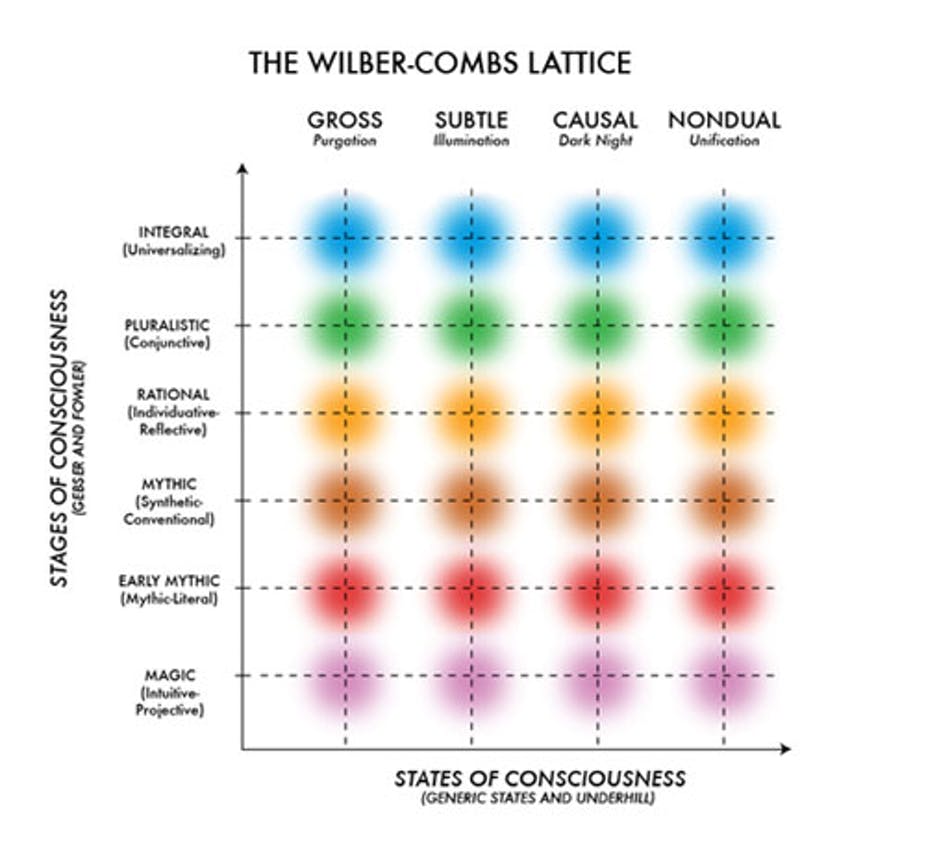 States, or states of consciousness
States, or states of consciousness
"Where states of consciousness are temporary, stages of consciousness are permanent." - Ken Wilber
Integral Theory also recognizes that people have access to a variety of states of consciousness that are available at any stage of development. These include waking, dreaming, and deep sleep as well as phenomenal emotional states, meditative states, and drug-induced states.
States are temporary states of consciousness, such as waking, dreaming and sleeping, bodily sensations, and drug-induced and meditation-induced states. Some states are interpreted as temporary intimations of higher stages of development.
Wilber's formulation is: "States are free but structures are earned." A person has to build or earn structure; it cannot be peak-experienced for free. What can be peak-experienced, however, are higher states of freedom from the stage a person is habituated to, so these deeper or higher states can be experienced at any level.
- Gross consciousness—feeling everything in you, around you, and in the universe, including your own body, constantly arising in the present moment out of nothingness.
- Subtle consciousness—experiencing all objects (from tiny grains of sand, to towering mountains, to clouds across the sky) as precious, unique expressions of spirit arising.
- Causal consciousness—relaxing into complete nothingness, emptiness (Śūnyatā” in Sanskrit). Myamoto Musashi called this emptiness the “void,” and ended his famous warrior text, A Book of Five Rings, with: “In the void is virtue and no evil. Wisdom has existence. Principle has existence. The Way has existence. Spirit is nothingness.”
- Non-Dual consciousness—feeling the cosmos as totally full, present, unique, and connected, flowing constantly from absolute nothingness.



